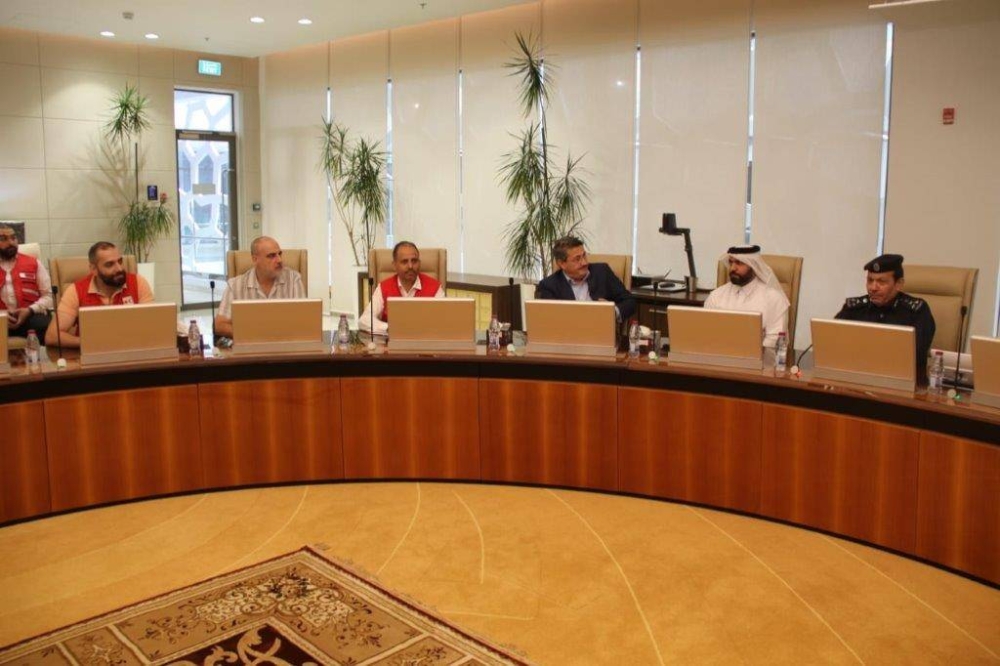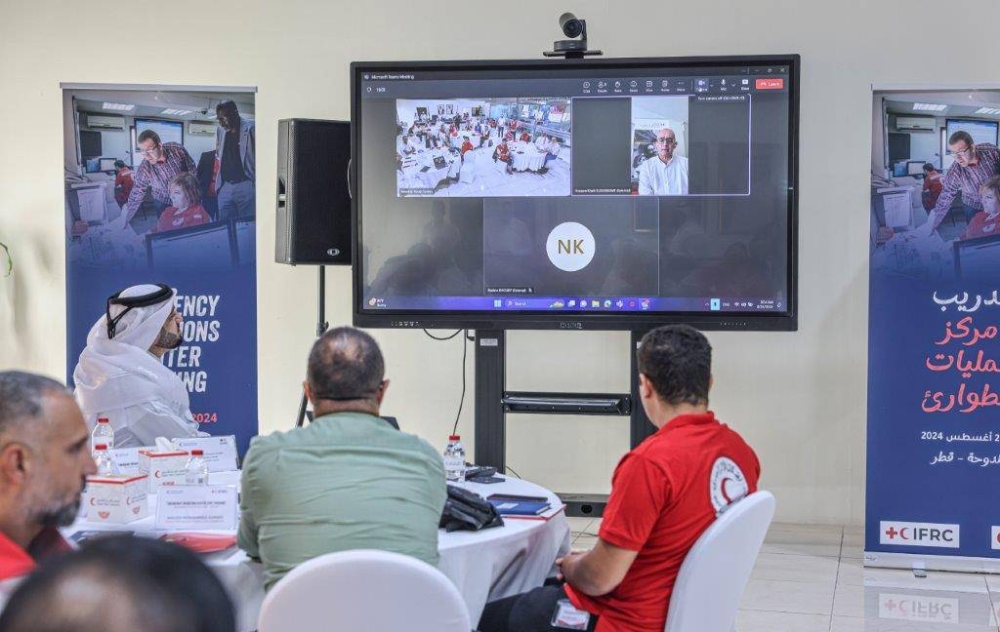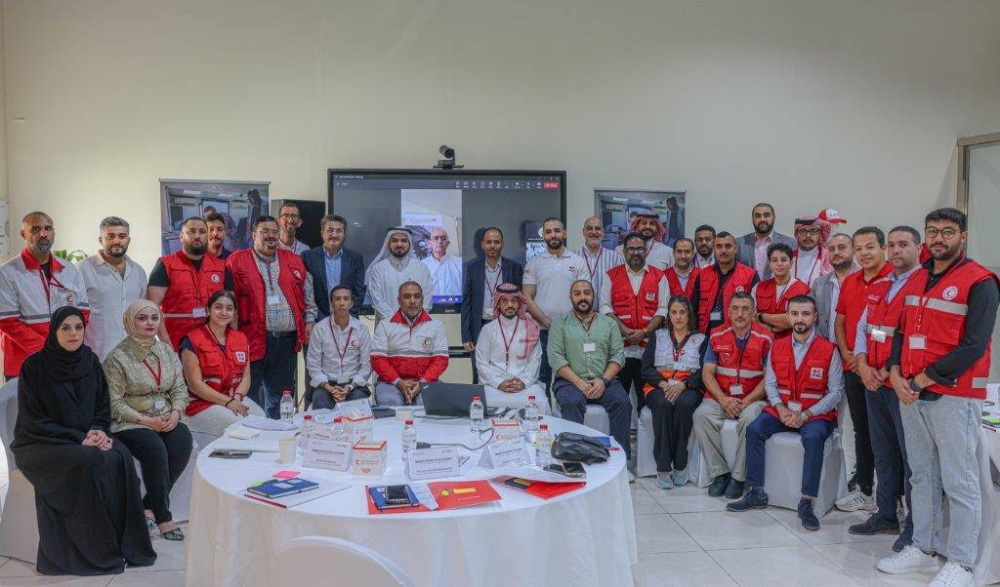The Qatar Red Crescent Society (QRCS) has concluded a training session for the emergency operations centers. The event was organised in partnership with International Federation of Red Cross and Red Crescent Societies (IFRC) and brought together representatives of 14 national societies in the Middle East and North Africa (Mena).
Secretary-General of QRCS Faisal Mohammed Al Emadi affirmed that such kind of training sessions enhance the relief workers capabilities and improve national societies' preparations to counter emergencies and disasters. He pointed out that such a session was an invaluable opportunity to share skills and impart knowledge to workers in the field, thus elevating the level of managing disasters and crises in the future through enforcing highest standards of planning and effective response.
Speaking virtually, Regional Director at IFRC in Mena, Dr. Hossam El Sharkawi commended the QRCS backed role in hosting such kind of training sessions that would add further information and share expertise with respect to preparations and response to emergencies and disasters, highlighting that even if there is a technological edge, humans cannot be ignored as they are the major component whose potential must be advanced with enhanced capabilities to serve the community in the emergency field.
Senior official in the IFRC's risk management unit Khaled Rabeh said IFRC strives to train volunteers and staffers from national societies in Mena technologically, in addition to bolstering their technical and administrative capabilities in managing and operating emergency operations centers through offering state-of-the-art technologies in this field so as to ensure maximum and effective responses to emergencies and disasters that engulf the region.
The week-long training session was intended to effectively enforce planning and surveillance criteria, in addition to helping workers transfer their expertise to their peers to strengthen their societies' posture to efficiently address current and future challenges.
The session discussed an array of critical themes, including the introduction of emergency operation center and its role and significance within the humanitarian and relief framework, the relationship between the center and other response system, reviewing the fundamental administrative operations to effectively operate the center, the necessary tools of managing emergency and discussing the core measures of crisis management, along with the effective response criteria to ensure provision of prompt assistance more accurately.
The participants lauded the QRCS for hosting this training and underscored the importance of building a robust knowledge base that enhances societies' readiness and those operating in managing the emergency at the center.
Response Officer at the Yemeni Red Crescent Waleed Al Khassa said his participation was significant to create a stellar emergency operation center equipped with essential tools required to conduct effective operations.
Senior Disaster Management Specialist at the Saudi Red Crescent Authority Ahmed Faisal Al Oudah, affirmed that his participation came to share knowledge with the remaining national societies in the region and bolster the authority's capabilities.
Employee in the Central Operations Room at the Palestinian Red Crescent, Nihal Mousa Kurdi, said such a training would upgrade response capabilities, especially during humanitarian and health crises throughout this interactable circumstance facing the Palestinian people.
Upon concluding the event, HE the Director of Relief and International Programs Division at QRCS, Mohamed Salah Ibrahim, honored the participants and handed over training completion certificates to them.




